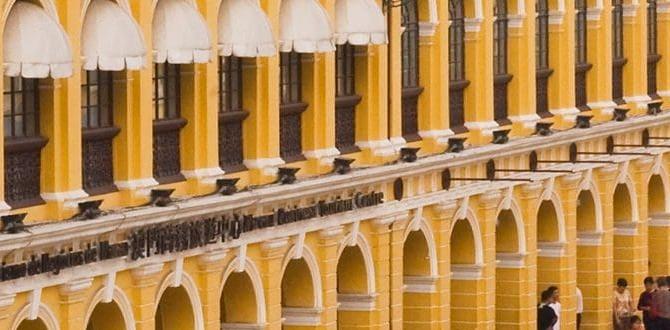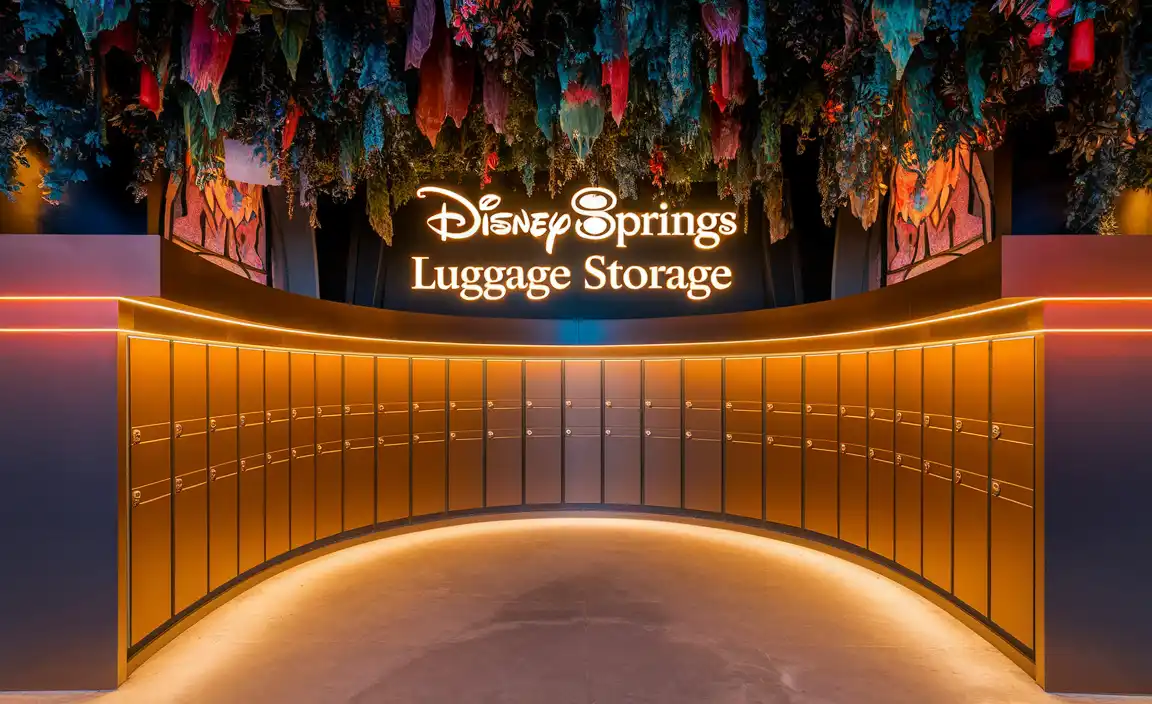Australia Accommodation: Your Essential Guide for a Stress-Free Stay
Planning your trip to Australia? Finding the perfect place to stay can seem overwhelming with so many options. But don’t worry! I’m Michael C. Herrera, your guide from Journey Essentials, and I’m here to make it simple. We’ll walk through the best ways to find comfortable, convenient, and suitable accommodation for every type of traveler, ensuring your Australian adventure is fantastic from the moment you arrive.
Australia Where to Stay Guide: Essential Tips for Every Traveler
Australia is a vast and incredible country, offering everything from bustling cityscapes to serene outback landscapes and stunning coastlines. Deciding “Australia where to stay” is a crucial first step in planning your unforgettable journey. Whether you’re a solo explorer, a family on vacation, or a couple seeking a romantic getaway, understanding your accommodation options will significantly enhance your travel experience. This guide will break down the essentials, offering practical tips to ensure you book the right place, every time.
Understanding Australia’s Diverse Accommodation Landscape
Australia’s geography dictates a wide range of living styles. From the sun-drenched beaches of the Gold Coast to the cultural heart of Melbourne and the rugged beauty of Tasmania, each region has its unique charm and, consequently, its preferred accommodation types. Knowing what’s available and what suits your travel style is key to a comfortable and memorable stay.
Hotels and Resorts: Classic Comfort and Convenience
For travelers seeking familiar comforts and full-service amenities, hotels and resorts are a reliable choice. Major cities like Sydney, Melbourne, Brisbane, and Perth boast an extensive selection, ranging from luxury five-star establishments to affordable, comfortable mid-range options.
- High-End Hotels: Offer premium services, fine dining, spas, and prime locations, often with stunning city or ocean views.
- Mid-Range Hotels: Provide a good balance of comfort, amenities, and price, suitable for most travelers.
- Apartment Hotels (Aparthotels): Combine hotel services with apartment-style living, featuring kitchens or kitchenettes, which can be great for longer stays or families.
Serviced Apartments: Home Away From Home
Serviced apartments offer more space and flexibility than traditional hotel rooms. They are ideal for families, longer stays, or those who prefer to have kitchen facilities to prepare their own meals. Many come with amenities like swimming pools and gyms.
- Benefits: More living space, kitchen facilities, laundry options, often more cost-effective for groups or extended trips.
- Considerations: May have fewer daily services than a hotel (e.g., daily housekeeping might be optional).
Motels and Motor Inns: Road Trip Ready
Found along major highways and in regional towns, motels are perfect for road-trippers. They typically offer free parking right outside your room and basic amenities for an overnight stop or a short stay.
- Best for: Travelers driving between destinations, those on a budget seeking no-frills comfort.
- Features: Ground-floor rooms, accessible parking, usually have an en-suite bathroom and sometimes a small fridge.
Hostels: Budget-Friendly and Social
Hostels are fantastic for budget travelers and solo adventurers looking to meet new people. Australia has a strong hostel network, offering dormitory-style rooms and private rooms, communal kitchens, and social common areas.
- Pros: Very affordable, great for meeting other travelers, organized tours and activities often available.
- Cons: Dorm rooms offer less privacy, shared bathrooms are common.
Caravan Parks and Holiday Parks: Outdoor Adventures
For those who love the outdoors and a more relaxed pace, caravan parks and holiday parks are a wonderful option. They offer powered and unpowered sites for caravans and campervans, as well as cabins and villas for those who don’t have their own recreational vehicle.
- Amenities: Often include playgrounds, swimming pools, BBQ areas, communal kitchens, and sometimes even water slides or mini-golf.
- Location: Frequently situated in scenic coastal or rural areas, perfect for a nature escape.
Unique Stays: Glamping, Farm Stays, and Boutique Experiences
Australia offers some truly unique accommodation experiences for those looking to step off the beaten path. From luxury glamping tents under the stars to working farm stays and charming boutique hotels, these options provide a more immersive and memorable experience.
- Glamping: Combines the luxury of a hotel with the beauty of being outdoors.
- Farm Stays: Allows you to experience rural Australian life firsthand.
- Boutique Hotels: Offer personalized service and a unique, often historical, atmosphere.
Key Factors When Choosing Where to Stay in Australia
Selecting the right accommodation is personal to your travel style, budget, and the purpose of your trip. Here are the essential factors to consider:
Location, Location, Location!
Your choice of location will depend heavily on what you want to see and do. Are you looking for city nightlife, beach relaxation, or access to national parks?
- City Stays: Proximity to public transport, attractions, restaurants, and business districts is often key. Consider areas like The Rocks or Circular Quay in Sydney, or the CBD in Melbourne.
- Coastal Stays: Beachfront access, proximity to surf breaks, or a quiet bayside location might be priorities. Think Gold Coast, Byron Bay, or the Great Ocean Road.
- Rural and Outback Stays: Focus on accessibility to national parks, hiking trails, or local points of interest.
A good starting point for understanding Australia’s diverse regions and what they offer is the official Tourism Australia website. It provides fantastic insights into different destinations.
Budget: How Much Do You Want to Spend?
Accommodation costs can vary significantly. Setting a daily or total budget for your stay will help narrow down your options.
Average Accommodation Costs (per night, AUD):
| Accommodation Type | Budget Friendly | Mid-Range | Luxury |
|---|---|---|---|
| Hostel Dorm Bed | $30 – $50 | – | – |
| Budget Motel/Hotel Room | $100 – $150 | – | – |
| Mid-Range Hotel/Apartment | – | $150 – $300 | – |
| Luxury Hotel/Resort | – | – | $300 – $800+ |
| Cabin in Holiday Park | $120 – $180 | – | – |
Note: Prices are approximate and can vary greatly by season, location, and day of the week. Booking in advance, especially during peak season, is highly recommended.
Amenities: What’s Important to You?
Make a list of your must-have amenities. This could include:
- Wi-Fi: Essential for most travelers to stay connected and plan their days.
- Parking: Crucial if you’re renting a car or driving your own. Check if it’s included or an extra charge.
- Kitchenette/Full Kitchen: Great for saving money on meals and catering to specific dietary needs.
- Laundry Facilities: Very handy for longer trips.
- Pool/Gym: For relaxation or staying active.
- Family-Friendly Features: Such as cribs (cots), high chairs, or interconnecting rooms.
- Accessibility Features: For travelers with mobility needs.
Travel Companions: Who Are You Traveling With?
The needs of your travel party will heavily influence your accommodation choice.
- Solo Travelers: Hostels offer social opportunities, while budget hotels or motels provide privacy.
- Couples: Boutique hotels, resorts, or private rooms in hostels can be ideal.
- Families: Serviced apartments, holiday parks with cabins, or family-friendly hotels with amenities like pools and playgrounds are excellent choices. Some families may even look at self-contained holiday homes.
- Travelers with Specific Needs: If you require specific personal care items for mobility or continence, ensuring your accommodation can comfortably accommodate you, perhaps with extra space or private bathroom facilities, is important. For instance, if you’re traveling with children needing specific diaper solutions or require adult diapers for long journeys, look for accommodations that offer a good balance of comfort and amenities. Booking larger rooms or apartments can provide more space for managing personal needs discreetly and comfortably.
Duration of Stay
A short overnight stay might be fine in a basic motel, but for a week-long exploration of a city, a serviced apartment with more amenities and living space would be far more comfortable.
Tips for Booking Your Australian Accommodation
Once you know what you’re looking for, here’s how to secure the best option:
Book in Advance
Australia is a popular destination. For travel during peak seasons (school holidays, Christmas, Easter, major sporting events), booking your accommodation months ahead is highly recommended, especially in sought-after areas like the Great Barrier Reef or major cities.
Read Reviews Carefully
Online booking sites like Booking.com, Expedia, and Agoda, as well as Google Reviews, are invaluable. Pay attention to recent reviews regarding cleanliness, staff helpfulness, noise levels, and the accuracy of the property description. Look for patterns rather than isolated negative comments.
Compare Prices
Don’t book the first price you see! Use comparison websites and check the accommodation’s direct website. Sometimes booking directly can land you better deals or perks.
Understand the Cancellation Policy
Always check the cancellation terms before booking. Flexible cancellation policies offer peace of mind, especially if your travel plans are subject to change.
Look for Package Deals
Accommodation providers and travel agencies often bundle flights, accommodation, and tours. These packages can sometimes offer significant savings.
Travel Insurance is Your Friend
While not directly about booking, having comprehensive travel insurance is a crucial tip. It can cover unexpected events, including issues with accommodation or unforeseen medical needs, ensuring peace of mind throughout your trip. Organizations like Services Australia can provide information on reciprocal healthcare agreements for eligible visitors.
Navigating Specific Needs: Comfort and Convenience for All
Travel should be comfortable and accessible for everyone. For some, this means considering specific needs related to personal care. Whether you’re traveling with young children who require diapers or need adult diaper solutions for long flights or personal comfort, planning ahead can make a world of difference.
Traveling with Children: Diapers and Comfort
For parents, managing diaper needs on the go is a common concern. Australia has readily available supplies in supermarkets and pharmacies, but packing a good supply for the journey and immediate arrival is wise.
- Packing Essentials: Pack more diapers than you think you’ll need for flights and car journeys, along with wipes, changing mats, and disposal bags.
- On-the-Ground Supplies: Major supermarket chains like Woolworths and Coles, along with pharmacies like Chemist Warehouse, stock a wide range of baby and child diapers.
- Accommodation Choice: Family-friendly hotels or serviced apartments with ample bathroom space can make changing easier. Look for options with bathtubs if that helps with your little one’s routine.
Adult Diaper Solutions for Travel
For adults who require continence products, comfort, discretion, and reliability are paramount, especially during long travel days.
- Product Selection: Choose products designed for your specific needs (e.g., pull-ups for active individuals, briefs for higher absorbency, or pads for lighter needs). Many brands offer discreet options.
- Packing for Flights/Long Journeys: Pack more than you think you’ll need. Keep a readily accessible “day bag” with changes during travel. Consider small, discreet disposable bags for used products.
- Accommodation Considerations: Ensure your accommodation offers privacy and clean restroom facilities. If you require extra space for mobility aids or personal care, booking a larger room or an accessible room (if available and needed) is advisable.
- Local Availability: Major pharmacies will carry these products, but researching local options via their websites before you go can be helpful.
Prioritizing comfort and having necessary supplies means you can focus on enjoying your Australian adventure without added stress.
Popular Australian Destinations and Where to Stay
To give you a head start, here are some popular spots:
Sydney, New South Wales
- Areas: CBD, Circular Quay, The Rocks (city buzz), Bondi, Manly (beach life), Darling Harbour (family attractions).
- Accommodation: Wide range from hostels to luxury international hotels and serviced apartments.
Melbourne, Victoria
- Areas: CBD (culture, dining), Southbank (arts, entertainment), St Kilda (beach, cafes), Fitzroy (bohemian).
- Accommodation: Trendy boutique hotels, apartments, and well-known hotel chains.
Gold Coast, Queensland
- Areas: Surfers Paradise (iconic beach, nightlife), Broadbeach (dining, entertainment), Coolangatta (relaxed beach vibe).
- Accommodation: Abundance of apartments and resorts, many with ocean views. Holiday parks are also popular.
Cairns & Port Douglas, Queensland
- Areas: Cairns Esplanade (gateway to reef & rainforest), Port Douglas (upscale resort town).
- Accommodation: Resorts, apartments, and boutique hotels catering to reef and rainforest tourists.
Perth, Western Australia
- Areas: CBD, Cottesloe (beach), Fremantle (historic port city).
- Accommodation: Modern hotels, apartments, and some unique heritage stays in Fremantle.
Frequently Asked Questions (FAQ)
What is the most affordable way to stay in Australia?
The most affordable options are typically hostels, offering dorm beds and sometimes private rooms. Caravan parks with unpowered sites or basic cabins are also budget-friendly, especially if you are self-sufficient.
Are hotels in Australia expensive?
Hotel prices vary significantly. Major city centers and popular tourist destinations (like Sydney, Melbourne, Gold Coast) tend to be more expensive, especially during peak season. Mid-range hotels can cost between AUD $150-300 per night, while luxury options are $300+.
Is it better to book accommodation in Australia in advance or on arrival?
It is highly recommended to book accommodation in advance, especially if you are traveling during peak seasons, holidays, or to popular destinations. Last-minute bookings can be more expensive and offer limited choices.
Do I need to worry about Wi-Fi when staying in Australia?
Most hotels, hostels, and serviced apartments will offer Wi-Fi. However, it’s always best to check if it’s included in the room rate or comes with an extra charge. In more remote or regional areas, Wi-Fi might be less available or slower.
What are holiday homes or self-contained apartments good for?
These are excellent for families, groups, or longer stays. They offer more space, privacy, and kitchen facilities, which can help save money on dining out and cater to specific dietary needs or preferences.
Are there any specific accommodation tips for travelers with mobility issues or requiring personal care items?
Yes. When booking, always check if the accommodation offers accessible rooms with features like wider doorways, roll-in showers, and grab bars. Confirming availability of space for mobility aids or personal care items is also advisable. Some travelers find serviced apartments offer more flexibility and space for managing personal needs discreetly.
What’s the difference between a hotel and a motel in Australia?
Hotels are typically larger, offer more amenities (like restaurants, room service, concierge), and are often located in city centers or resort areas. Motels are generally smaller, located along highways or in regional towns, and primarily cater to travelers seeking a convenient overnight stop with easy parking access directly outside their room.
Conclusion
Choosing where to stay in Australia is a vital part of crafting your perfect trip. By considering your budget, desired location, necessary amenities, and travel companions, you can confidently select accommodation that enhances your experience. Whether you opt for the convenience of a city hotel, the space of a serviced apartment, the social buzz of a hostel, or the natural charm of a holiday park, Australia offers







